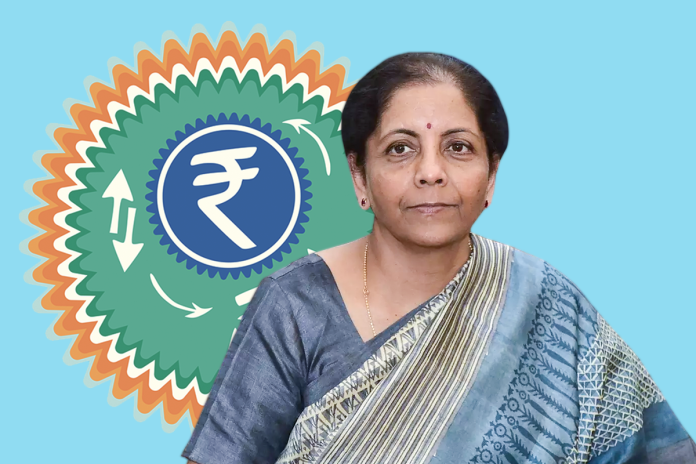Snapshot
National Monetisation Pipeline (NMP) estimates aggregate monetisation potential of Rs six lakh crores through core assets of the Central Government, over four years, from FY 2022 to FY 2025.
The estimated value corresponds to 14 per cent of the proposed outlay for the Centre under National Infrastructure Pipeline (NIP) at Rs 43 lakh crore.
The sectors included are roads, ports, airports, railways, warehousing, gas and product pipeline, power generation and transmission, mining, telecom, stadium, hospitality and housing.
Union Minister for Finance and Corporate Affairs, Nirmala Sitharaman, on Monday (23 August), launched the asset monetisation pipeline of Central ministries and public sector entities: ‘National Monetisation Pipeline (NMP Volumes 1 and 2)’.
The pipeline has been developed by NITI Aayog, in consultation with infrastructure line ministries, based on the mandate for ‘Asset Monetisation’ under Union Budget 2021-22.
National Monetisation Pipeline (NMP) estimates aggregate monetisation potential of Rs six lakh crores through core assets of the Central Government, over four years, from FY 2022 to FY 2025.
NMP is envisaged to serve as a medium-term roadmap for identifying potential monetisation-ready projects across various infrastructure sectors.
NMP aims to provide a medium-term programme roadmap for public asset owners, along with visibility on potential assets to the private sector.
The Union Minister of Finance, while launching the pipeline, said, “Asset monetisation, based on the philosophy of Creation through Monetisation, is aimed at tapping private sector investment for new infrastructure creation.”
“The strategic objective of the programme is to unlock the value of investments in brownfield public sector assets by tapping institutional and long-term patient capital, which can thereafter be leveraged for further public investments,” Vice Chairman, NITI Aayog, said during the launch.
He emphasised the modality of such unlocking, which is envisaged to be by way of structured contractual partnership as against privatisation or slump sale of assets.
NMP is a culmination of insights, feedback and experiences consolidated through multi-stakeholder consultations undertaken by NITI Aayog, Ministry of Finance and line ministries.
NITI Aayog has held several rounds of discussion with the stakeholders. The pipeline has been deliberated at length in an inter-ministerial meeting chaired by Cabinet Secretary. This pipeline is, therefore, a whole of a government initiative.
“Secretaries of all infrastructure ministries affirmed their resolve towards achieving their respective targets set under NMP, working jointly with NITI Aayog and Ministry of Finance,” the official statement said.
As part of a multi-layer institutional mechanism for overall implementation and monitoring of the Asset Monetization programme, an empowered Core Group of Secretaries on Asset Monetization (CGAM) under the chairmanship of Cabinet Secretary has been constituted.
“The Government is committed to making the Asset Monetisation programme, a value-accretive proposition both for the public sector and private investors, through improved infrastructure quality and operations and maintenance,” the statement added.
Top Five Sectors
The aggregate asset pipeline under NMP over the four years, FY 2022-2025, is indicatively valued at Rs 6 lakh crore. The estimated value corresponds to 14 per cent of the proposed outlay for the Centre under National Infrastructure Pipeline (NIP) at Rs 43 lakh crore.
The sectors included are roads, ports, airports, railways, warehousing, gas and product pipeline, power generation and transmission, mining, telecom, stadium, hospitality and housing.
The top five sectors (by estimated value) capture almost 83 per cent of the aggregate pipeline value. These top five sectors include Roads (27 per cent) followed by Railways (25 per cent), Power (15 per cent), oil and gas pipelines (8 per cent) and Telecom (6 per cent).


